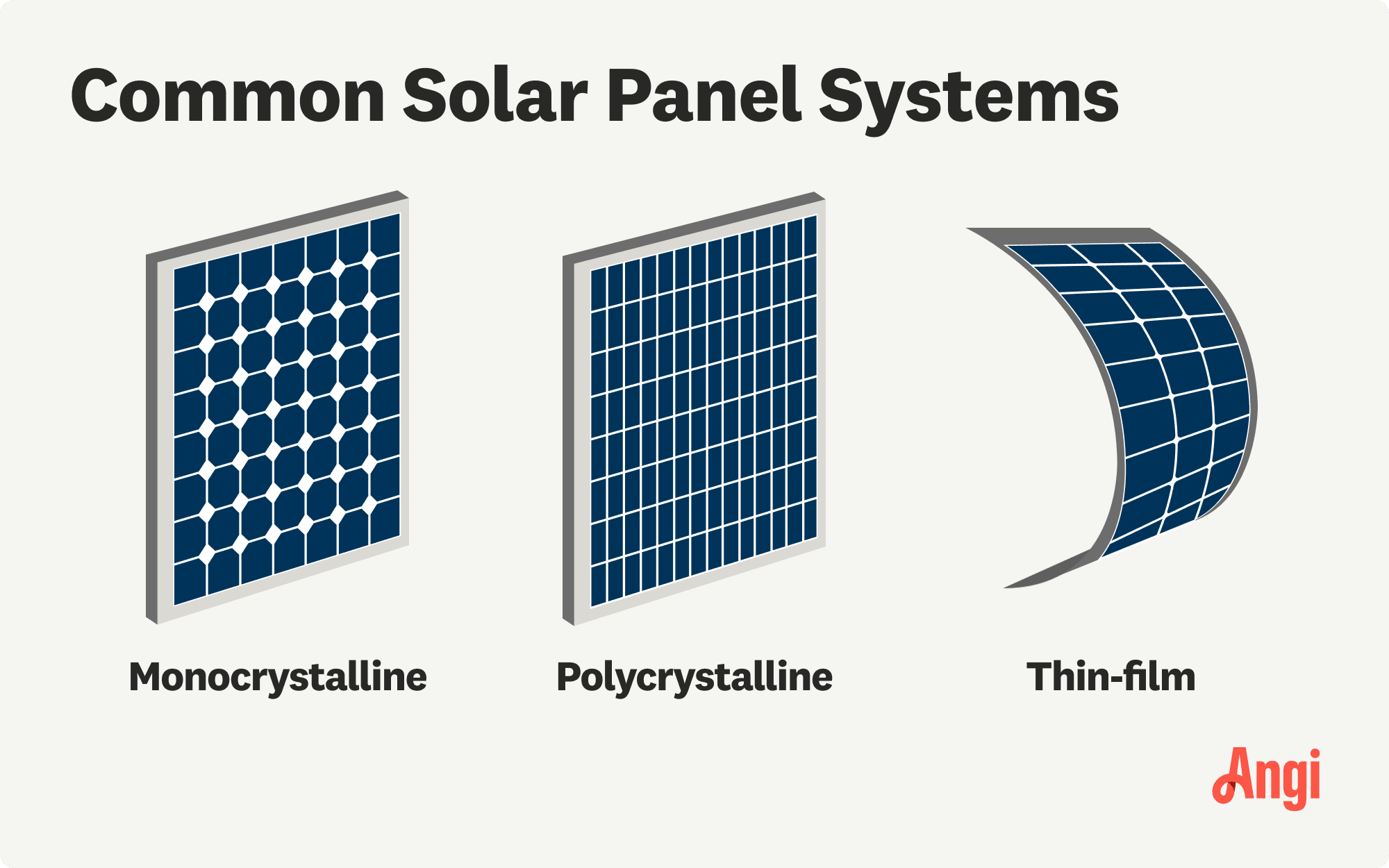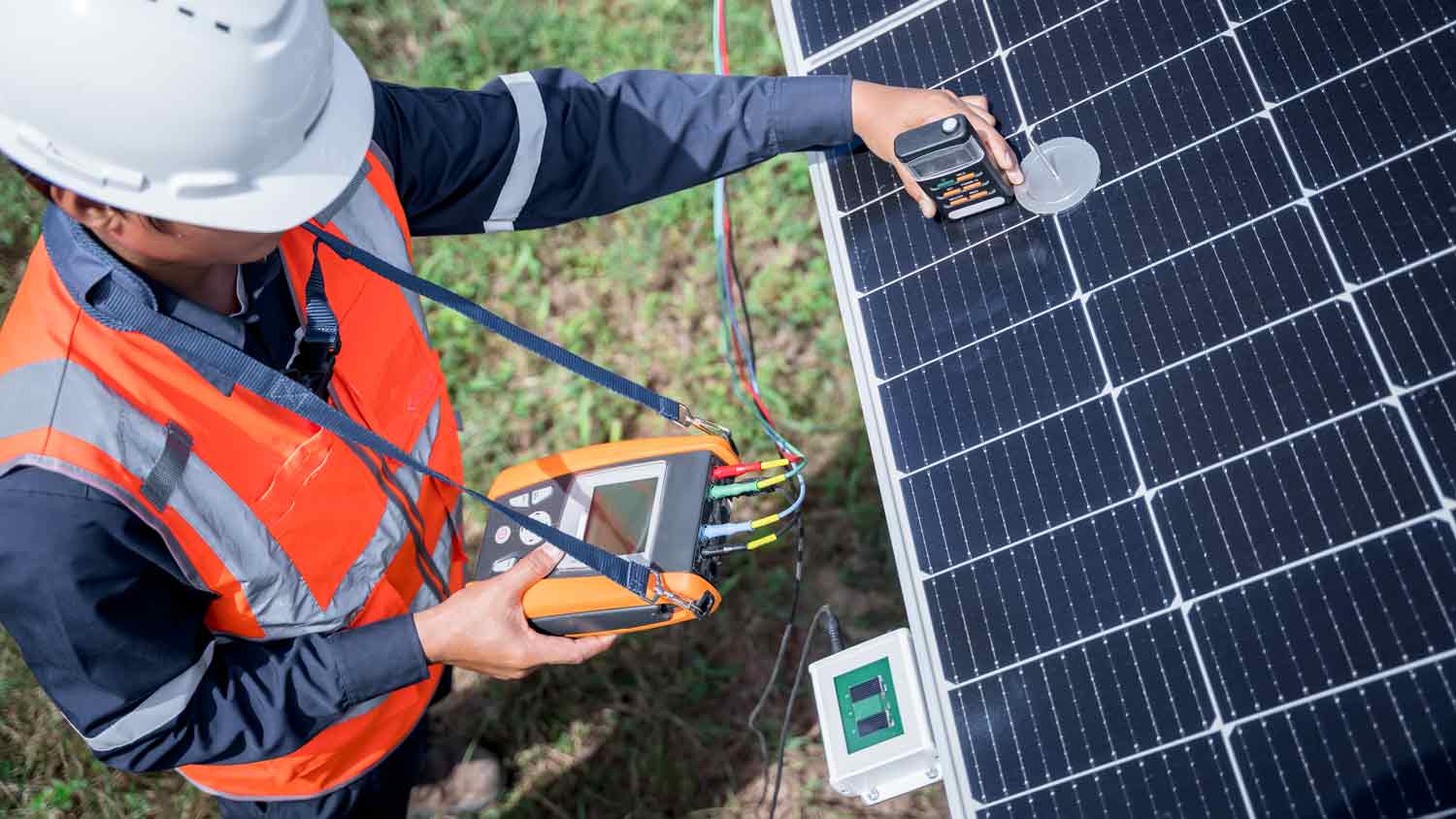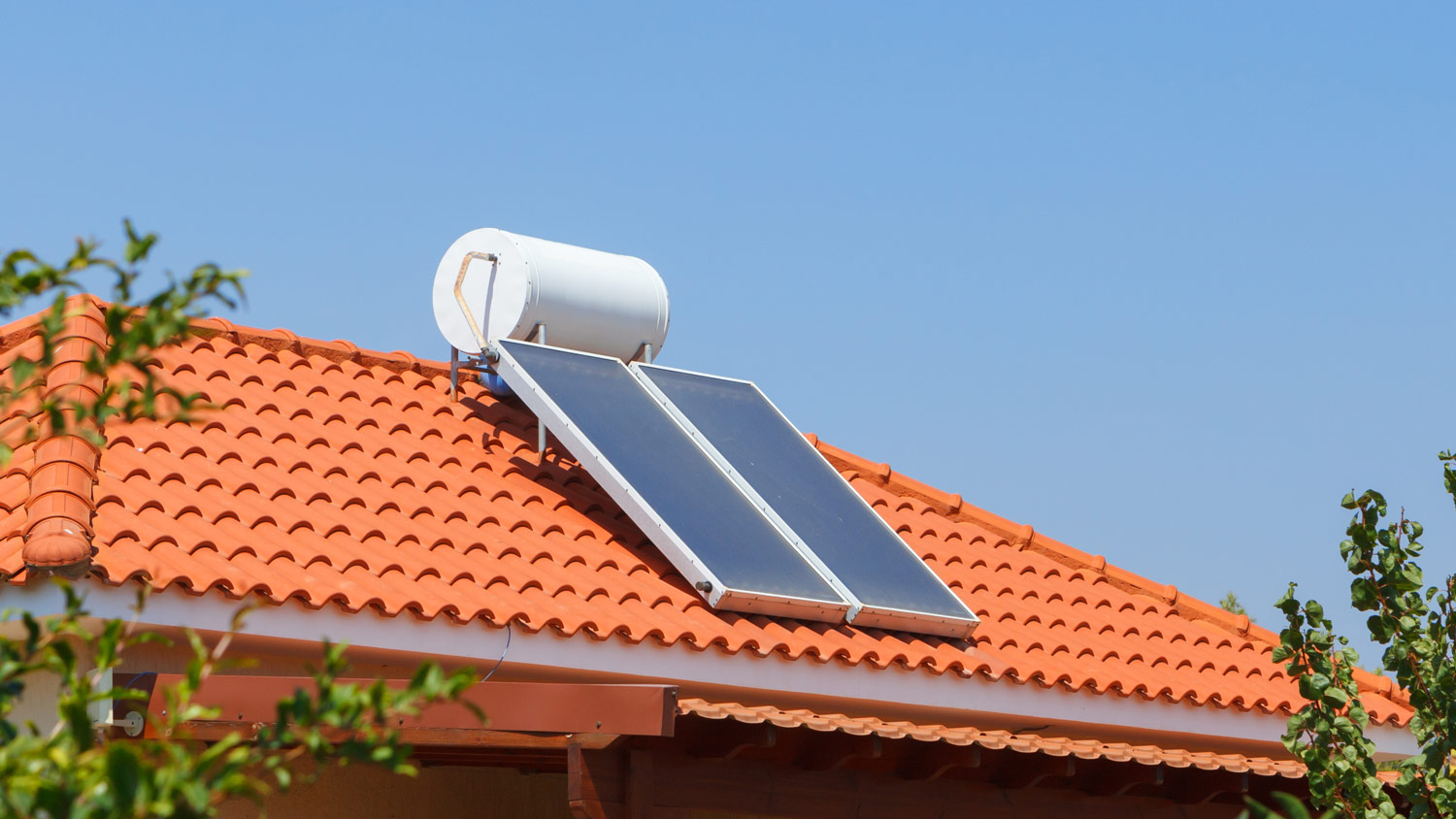
Get a detailed estimate of solar farm costs. Learn about average prices, key cost factors, and ways to save when planning your solar farm project.
Solar panel service costs depend on your project and location. Check with a local pro for your specific job.
Houston's near-constant sunshine makes it one of the best solar markets for energy production.
Texas doesn’t have statewide net metering, but you can look into utility buyback programs across the Houston area.
Hot summers and high cooling costs mean there can be substantial savings for Houston households that run on solar energy.
Houston is known as the energy capital of the world—but beyond oil and gas, the city’s legendary year-round sunshine makes energy savings possible for homeowners with solar panel systems. Solar panel installation costs in Houston, Texas, average $41,578, but prices range from $26,964 to $58,627, depending on your system’s size and setup. Here's a complete breakdown of solar installation costs in Houston.
From the Gulf Coast sun to sprawling suburban layouts, there are various factors affecting solar costs in Houston. While rough estimates for the following factors help during initial planning, connect with an experienced solar panel installer in Houston, Texas, for detailed estimates tailored to your home.
The size of the solar system will impact your solar panel installation costs. The larger the output, the more you’ll pay. Most homes need 6- to 10-kW (kilowatt) systems, which work out to anywhere from 15 to 34 panels, depending on the wattage.
The table below shows average costs based on the size of your solar system:
| System Size (kW) | Number of Solar Panels | Average Cost |
|---|---|---|
| 4 | 10–12 | $12,800–$15,600 |
| 6 | 15–18 | $19,200–$23,400 |
| 8 | 20–24 | $25,600–$31,200 |
| 10 | 25–30 | $32,000–$39,000 |

When choosing the type of solar panel that works best for your home, consider three main factors: efficiency, life expectancy, and design. Here’s how the type of solar panel can affect your cost:
| Type of Solar Panel | Average Cost per Watt | Efficiency Rate (%) | Pros | Cons |
|---|---|---|---|---|
| Monocrystalline | $1–$1.30 | 18–22 | Very efficiency, compact | Higher cost |
| Polycrystalline | $0.70–$1 | 15–17 | Budget-friendly, reliable output | Lower efficiency, larger footprint |
| Thin film | $0.50–$0.85 | 10–12 | Versatile mounting, performs well in shade | Requires significant roof space |
On average, most homes need anywhere from 20 to 25 panels to fully power a home, but this can range from as few as 15 to as many as 34. How many solar panels you need depends on the number of watts per panel, your energy consumption, and the efficiency of your panels. Your average solar panel will have an output of anywhere from 250 to 400 watts. The dimensions of your solar panels will also depend on the power output.
Houston weather isn’t for the faint of heart with intense heat and humidity and the occasional storm rolling in from the Gulf, so your solar setup needs the right hardware to withstand these conditions.
The more advanced the technology, the higher the up-front cost. The type of mount will affect the cost as well:
Fixed mounts: $18–$28 per mount
Standard roof mounts: $135–$270 per panel
Ground mounts: $450–$900 per panel
Adjustable mounts: $69–$90 per mount
Tracking: $720–$3,600 or more per mount (these mounts can self-track sunlight, leading to up to 45% more energy production)
Ballasted systems: $180–$360 per panel (for flat roofs)
Other materials you will need for a solar energy system include the parts in the table below.
| Hardware | Average Cost |
|---|---|
| String inverter | $1,080–$3,150 each |
| Microinverters | $180–$360 each |
| Power optimizer | $90–$180 each |
| Solar battery | $7,200–$18,000 |
| Monitoring system | $270–$720 |
Inverter: Converts direct current (DC) electricity to alternating current (AC) electricity
Microinverters: Converts DC power to AC power at individual panels versus the whole string of panels
Optimizer: Regulates currents so each panel is more energy efficient and prevents power loss.
Battery: Stores excess energy from the system so homeowners can use it at night or during a power outage
Some systems use a single solar inverter or several microinverters that convert DC to AC electricity. Materials like the wiring and battery are often grouped with the package price unless you opt for add-on services.
Many areas in Greater Houston have different permit rules, and working safely on roofs takes real know-how. A good installer will handle the paperwork and make sure everything meets local codes.
Budget $0.48 to $0.63 per watt for labor, but remember that this number doesn’t include permits or the cost of additional technology, such as special mounts, tiles, or shingles.
Solar panel installation does require electrical work. Though many solar panel installation companies have a licensed electrician on staff who specializes in solar panels, roofing contractors sometimes subcontract an electrician. The cost of hiring an electrician in Houston, Texas, averages $50 to $130 per hour, with most installations requiring four to eight hours of electrical work.
Depending on your area, you may need to get a building permit and a solar panel inspection before you can unveil your new solar panels. Permits and inspections will add an average of $125 to $500 to the solar panel costs.
Standard residential permits: $125–$350
City of Houston permits: $175–$450
Electrical permits: $75–$200
Utility interconnection hookups: $50–$175
Standard permitting takes one to three weeks across most of the Houston area.
Solar panel installations can deliver excellent investment returns in Houston's competitive housing market. The high electricity use during the hot summers means that solar-equipped homes can attract more buyer interest, command higher prices, and sell more quickly than comparable properties.
In this sunny city, solar panels are worth the investment. Homeowners and buyers see multiple benefits, including reduced electricity bills and utility buyback programs. Solar installations also provide protection against escalating electricity rates. With battery backup, they can maintain power during outages, which is particularly important during Houston's hurricane season.
Once your solar panels are paid off, they're officially your property. If you move, you can reinstall them on a new rooftop. Alternatively, they can increase the value of your home by 3% to 4% and attract more buyers. They can also give your property a competitive edge in a buyers’ market.
The best way to save money on the up-front costs of installing solar panels is to take advantage of the Solar Investment Tax Credit (ITC) before it ends on December 31, 2025. The ITC allows homeowners to claim a federal tax credit equal to 30% of the price of their solar panel system installation.
For example, if your solar panel system costs $30,000 before the federal tax credit, you can save around $9,000. However, to benefit from this credit, your solar system has to be installed and working before the federal incentive ends.
The ITC, also known as the Residential Clean Energy Credit, was originally extended through 2032 as part of the Inflation Reduction Act. However, new federal legislation (the Big Beautiful Bill Act) signed into law on July 4, 2025, terminated the credit early. The Solar Energy Industries Association® (SEIA) outlines the high-level policy changes and restrictions on energy tax credits.
Additionally, the extra power you choose not to store in a battery can be sent back to the grid. Your local utility company will compensate you for that power, but the amount will vary. You can check the Utility Rate Database on Open EI to estimate how much you can expect to receive for generating excess energy.
Texas doesn’t have statewide net metering, but Houston-area utilities offer rebates, buyback programs, and other solar incentives. Programs vary by provider, so contact your utility for details.
Texas also exempts solar installations from property tax increases, so your property taxes won’t go up after an increase in home value due to solar panel installation. Texas also waives state sales tax on solar equipment purchases, helping with your up-front costs.
Home is the most important place on earth, which is why Angi has helped more than 150 million homeowners transform their houses into homes they adore. To help homeowners with their next project, Angi provides readers with the most accurate cost data and upholds strict editorial standards. We survey real Angi customers about their project costs to develop the pricing data you see, so you can make the best decisions for you and your home. We pair this data with research from reputable sources, including the U.S. Bureau of Labor Statistics, academic journals, market studies, and interviews with industry experts—all to ensure our prices reflect real-world projects.
Want to help us improve our cost data? Send us a recent project quote to [email protected]. Quotes and personal information will not be shared publicly.
From average costs to expert advice, get all the answers you need to get your job done.

Get a detailed estimate of solar farm costs. Learn about average prices, key cost factors, and ways to save when planning your solar farm project.

Discover the average solar panel inspection cost, what impacts pricing, and how to save. Get expert tips to keep your solar system efficient and safe.

Get a clear estimate for solar water heater repair cost. Learn what impacts pricing and how to budget for your solar water heater repair.

Looking at solar panels for your home? You’ll need to choose between monocrystalline versus polycrystalline solar panels. Here are the pros and cons of each.

Want to know how to increase solar power efficiency? Be smart about installing and maintaining solar panels while strategically using energy.

Many homeowners are looking to lower energy bills and also help the environment. Installing solar panels on a backyard shed can do both. Here's what to know.